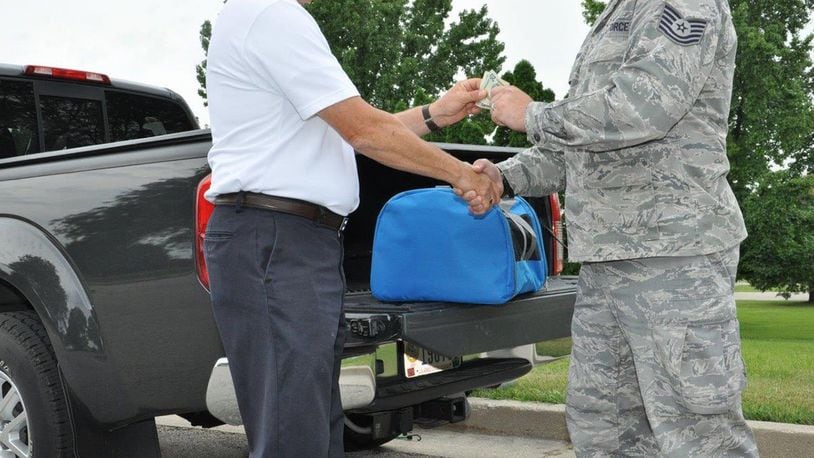Knowing what threats exist can help trigger caution in an individual when faced with something which appears to be one thing when in sad reality, it is not.
According to Master Sgt. Gary Hasecuster, 88th Security Forces Squadron investigator, different clues can arise in identifying potential scams; and said, “If it sounds too good to be true, it probably is.”
He advises Airmen to do a little homework before committing to any kind of an exchange.
“Search (Google) reviews of a website or program and see if it comes up as a scam,” he said. Online are often accounts of other victims of the same fraud who have already alerted authorities or others.
Hasecuster listed other indicators to look for:
* Contact is made through email or text only (never actually speaking to someone);
* Free email account return addresses such as G-Mail, Yahoo and Hotmail. Legitimate companies can afford to acquire and maintain a domain and related company email accounts.
* Post office box numbers for company addresses;
* Grammar and spelling mistakes;
* Asking for money to be wired to a direct account or through Western Union in advance;
* Someone claiming that they are from a “church retreat” or out of country;
* Asking for bank account details through email.
Especially concerning are so-called charity scams which play upon the victim’s sensibilities, and even military allegiances, to elicit what scammers often term as financial assistance for “veterans” and “military families” in need of support. These can take the form of an “organization” with familiar military terms in their names to individuals making pleas for assistance via social media.
While many legitimate charities do their best to support military families and veterans, as recent news reports have noted, there are a few unscrupulous actors who are only in it to benefit themselves. As a result, caring military members are bilked of their financial resources.
The list of threats to financial well-being is long. Other scams include rental housing scams, military loans, veterans’ benefits buyouts, car purchases, veteran employment, jury duty scams, military life insurance, Veterans Affairs scams and others.
Social media scams, including card popping, which targets college students and young enlisted members, are among the many hazards to a bank account. Card popping scammers pore over an individual’s social media content for indicators of current military service and use military related themes to bait the victim in.
Internal Revenue Service scams include phone calls stating that the IRS has filed a claim against them.
“Call the IRS at 800-829-1040, to verify if there is such an issue,” Hasecuster said for those being told that they need to send money to the IRS. “You should also contact the Federal Trade Commission and use their ‘FTC Complaint Assistant’ at www.ftc.gov and add ‘IRS Telephone Scam’ to the comments of your complaint.
The FTC site states, “We cannot resolve individual complaints, but we can provide information about what next steps to take.” Complaints help the FTC, the Department of Defense and the Consumer Financial Protection Bureau know what scamming trends are developing and then target them.
The FTC also operates Military Consumer – www.military.consumer.gov – which among providing other information, offers a free, downloadable toolkit designed to help service members, especially those making money-related decisions. The site is a collaboration between the FTC and the Department of Defense and other agencies. Additional free copies of the toolkit, whether individually or in quantities to be shared with families and friends, can be ordered there as well. A resources page on the site provides nearly 150 links to other sources of help.
It can seem a little daunting, but besides those listed above there are other helping agencies out there.
Stopfraud.gov provides a page which covers scams targeting veterans, service members and their families.
Hasecuster advised going to www.consumerfraudreporting.org, mailing Federal Trade Commission or, in those scams claiming that an individual is the next of kin to a wealthy person, or the winner of a lottery, contacting the local U.S. Secret Service.
While various agencies, both in and out of the government exist to help victims of scams both before and after the fact, it is the potential scam targets themselves who are the first line of defense in preventing the crime. Also, as information is shared, members remain vigilant and wrongdoers are reported, scams can be prevented and valuable personal financial assets can be safeguarded.
About the Author
